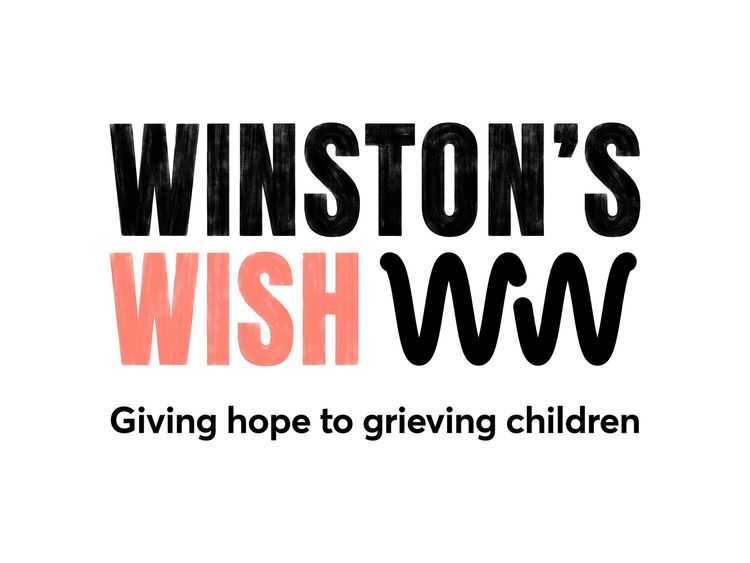A child or young person may want to go back to school, college or university immediately after a bereavement, but they may need more time.
On this page, we explain ways to support a child or young person returning to education after someone’s died. This includes how to make sure they get the support they need from their school, college or university.
Some of the suggestions are from talking to Youth Ambassadors at Winston’s Wish, the charity supporting bereaved children and young people.
Time off school or college after a bereavement
There is no set policy for time off school for a child or teenager after a bereavement. It’s best to contact the school as soon possible to explain what’s happened.
The school may have its own bereavement policy, but how long they are off also depends on:
- the child and how they’re feeling
- the child's relationship to the person who died (how close they were)
- the wishes and cultural beliefs of the family.
Going back to school may help a child who’s been bereaved. They may benefit from seeing friends, having a routine and getting support from the school. Staying away from school may also make a child more anxious. It could make it more difficult when they do go back.
It's important to reassure the child that going back to school does not mean that they’re expected to be OK now. It does not mean that things just go back to how they were before the person died. They’re still grieving, so they may need more days off later, and that’s fine.
But it’s also OK if they need longer before returning.
Grief is different for everyone and can affect people at different times. So it’s important to pay attention to how a child is feeling and behaving.
Getting support at school or college after someone’s died
When we spoke to young people who'd been bereaved, it was clear that some had experienced good support at school or college while others had not. Because of this, it's best to talk to the child about the support they need and discuss it with their school or college.
Remember that outside of the family, school can be the main source of support for a bereaved child. So, do not feel embarrassed to call or email the school to remind them or ask for more support, if you need to.
Before a child or teenager returns to school after a bereavement
These are things you can do to support a child or teenager before they go back to school:
-
Ask the school if they have a bereavement policy and what it includes.
-
Talk to the child about what kind of support they want from the school.
-
Ask if you can both have a pre-meeting at the school about arrangements for their first day back in (see Tips for meeting with the school below).
-
Find out from the child what they’re most worried about and think about what could help. This could include:
- if they’re worried about being apart from you, taking something in with them that they can hold when they’re feeling anxious
- having a plan for what they’ll say if a child or a teacher asks them what’s happened
- having a plan for what to say if someone who does not know mentions the person who has died.
Tips for meeting with the school
At this meeting you may want to talk to the school about these things for the child’s first day back:
- How the child wants to be treated by classmates and teachers. For example, some children may want people to know about their bereavement before they come back. But they may not want to be treated any differently in class. Others may only want their close friends to know what’s happened.
- A plan to support the child to catch up on missed schoolwork. This can help reassure them if it’s making them more worried about going back.
- If there’s anything coming up in class that the child might find particularly difficult because of what they’ve been through. For example, a sad poem or text, or discussions about illness or death.
School bereavement support for a child or teenager
It’s important to include older children and teenagers in discussions with the school or college about support once they’re back.
These are examples of the types of support you can discuss with the school:
One special teacher or member of staff they can go to
There may be one particular teacher who can look after their needs at school.
The school may have someone trained in pastoral support like an Emotional Literacy Support Assistant (ELSA). Or there may be a teacher that the child likes or trusts. You could then ask if they could be the child’s go-to person.
Breathing space or ‘time out’ breaks
This is when a child has special permission to leave class for a break when they need it. It should be a set place or room in the school where they can get support or have time on their own. It’s important that the school makes sure that all their teachers know about it.
Creative outlets and other resources for younger children
If a child is finding it difficult to share their emotions, the ELSA, or pastoral care teacher supporting them, may use these things:
- Creative outlets – like drawing, journaling or storytelling.
- Books on bereavement – books for their age group that talk about death and help them process their feelings.
- Safe spaces for expression – building the child’s trust by giving them the space and time to talk without pressure.
- Tools like worry boxes – a way for a child to communicate their worries without having to say them out loud.
A school counsellor
The school may have its own school counsellor. Or they may contact a specialist child bereavement organisation like Winston's Wish. The child or young person can also contact Winston's Wish directly.
The school may also contact their local authority mental health services for more help with finding support.
A bereavement support group
Some schools and colleges have a bereavement support group. It might be run by the school counsellor or a teacher with responsibility for pastoral care. It’s a place where students can talk to other students who’ve been bereaved.
Special consideration for exams
The school can apply to exam boards for special consideration for reasons like bereavement. This is an adjustment to their exam mark because of circumstances out of the student’s control. You can speak to the school about applying for special consideration. However, be prepared that the adjustment to their mark may seem small.
You can also speak to the school about other options if your child is worried about the effect of what they've been through on their schoolwork. It could include things like dropping a subject or seeing if a college will adjust the grades they need.
Transitioning between classes and schools after a bereavement
Some of the young people we spoke to felt that they had good support at primary school, but it was not the same when they started at secondary school. It might have been because the new school had not been told about the bereavement or had not been asked about support.
If a child is moving between schools or college, it’s worth checking that the new school or college knows about the bereavement. You may also need to remind them as a child moves up years and has new teachers.
University and higher education bereavement support
Some of the young people we spoke with thought it can be difficult knowing where to find bereavement support at university.
But there are many ways that a university can support a young person who’s been bereaved. Most of all, it’s important that the young person knows that they must ask for support if they’re struggling with grief or their mental wellbeing.
Each university has its own policy and types of support. A young person may want to find out how a university can provide support for bereavement and wellbeing before they apply. They might be able to find out more on the university’s website or brochure.
Universities and colleges have a policy of not sharing information about students with their families. But some have an opt-in system. This is when a student lets the university share information about anything affecting their health or wellbeing with their family. You may want to ask the child or young person if they would like to do this.
UCAS has information about the key things to do first (see link below). This includes telling their personal tutor.
Helping young people get support
Bereaved young people have told us how important it is to speak up if you think you might need support.
As an adult supporting a young person, make sure they know that they should not worry about whether they ‘qualify’ for help. If they’re struggling with grief or any other issues affecting their wellbeing or mental health, they need to tell someone and find support.

